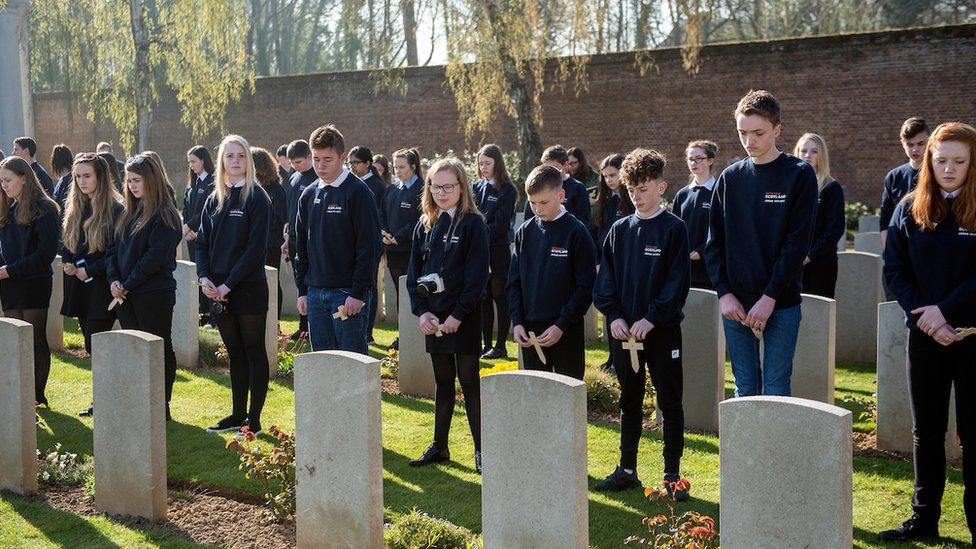100 year-old remains belong to one of two Scots soldiers
- Published
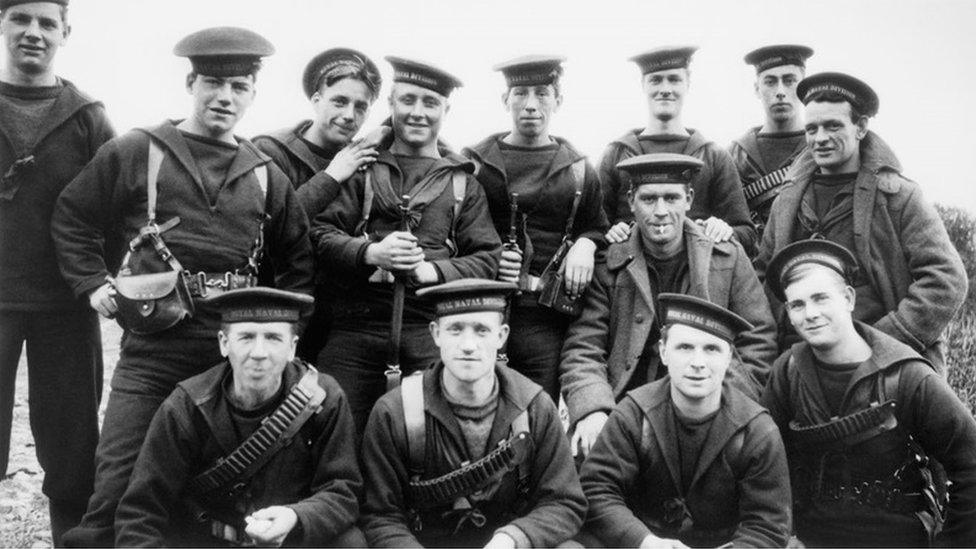
Sailors from the Royal Naval Division
A set of human remains found near a World War One battlefield belong to one of two Scottish sailors who died in France more than 100 years ago.
The MOD's Joint Casualty and Compassionate Centre (JCCC) is now hoping to trace relatives of the men to undergo a DNA test.
Andrew Turner Irvine and James Cameron Robertson were Able Seamen in the Royal Naval Division.
And both died during the Battle of Gavrelle on 28 April 1917.
The sailors are commemorated on the Arras Memorial in France.
But a set of human remains, found in 2016 while a pipe was being laid, will provide answers for one family.
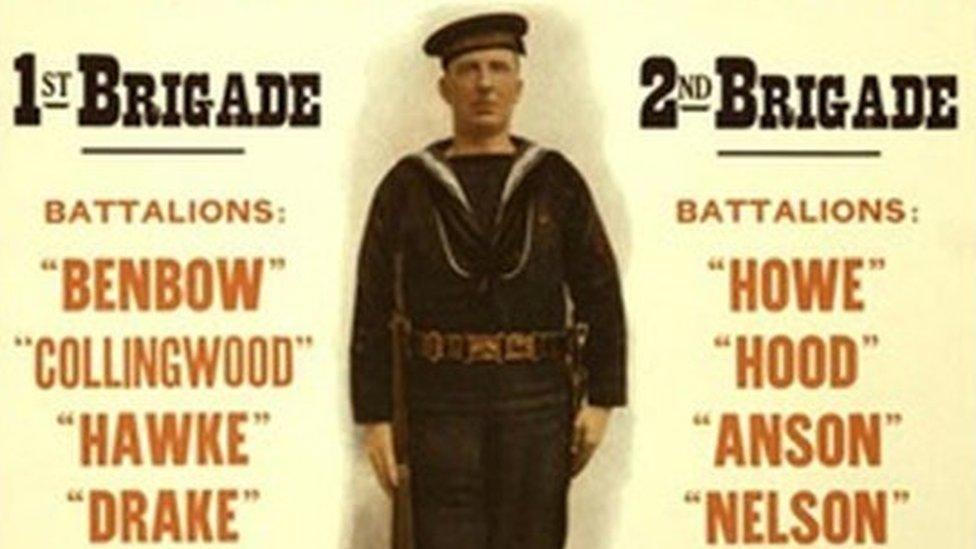
Recruitment poster for the Royal Naval Division, which was set up by Winston Churchill at the beginning of the conflict
Relatives will then be invited to attend a full military burial service in July.
Researchers at the JCCC narrowed down the list of missing sailors to two men, who were both 5ft 2in, after the remains were discovered outside Arras in northern France.
Mr Irvine was born in Glasgow in 1894 to Archibald Irvine and Jessie Carmichael.
He joined the Royal Naval Division in November 1915 and served with the Anson Battalion until his death.
The division, which was created by Winston Churchill at the beginning of conflict, consisted of two brigades along infantry lines and ended up fighting in almost all the major battles during the war.
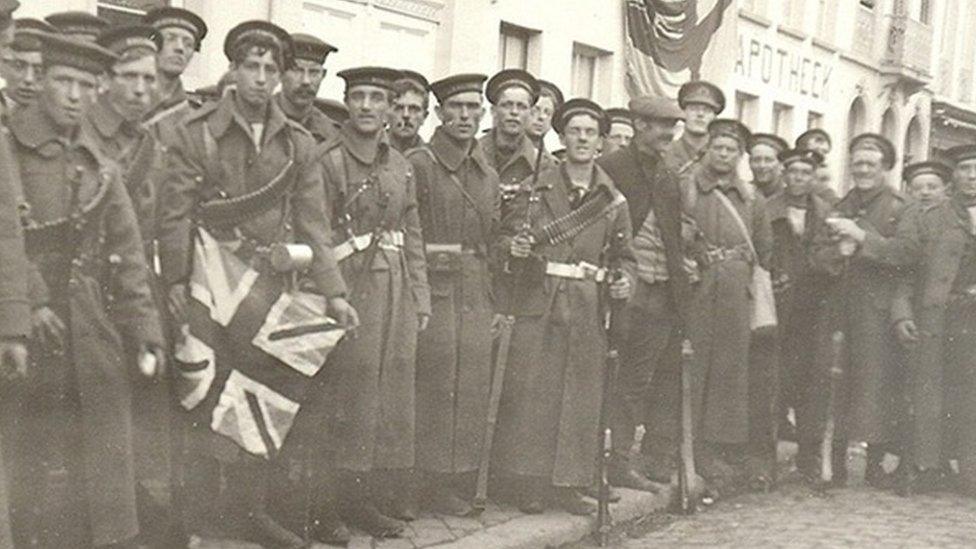
Able Seamen from the Royal Naval Division
Mr Robertson was born in Aberdeen in 1891 to John Mckay Robertson and Helen Cameron.
He joined the Royal Naval Division at the beginning of the war and served with the Hood Battalion, fighting in Gallipoli and Northern France.
After recovering from a combat related injury Mr Robertson was drafted to the Anson Battalion in January 1917.
According to his service record, his last known address was 27 Raeburn Place, Aberdeen.
Nicola Nash from the JCCC said: "Extensive research has managed to narrow our search down to just two sailors, so there should be a very good chance of identifying him.
"He is to be buried in France in July.
"Rather than bury him as an unknown sailor, I would love to be able to confirm an identity so that his headstone may bear his name."
Ms Nash said the value of the JCCC's work cannot be underestimated.
She added: "There are still so many thousands of men lost in the Great War who have no known grave.
"To be able to identify just one of them takes a huge amount of research.
"Most importantly, it brings their individual story to an end and fills in the gaps in their family history."
The Battle of Arras was fought from 9 April to 16 May 1917 and marked the beginning of the spring offensive on the Western Front.
The Allies suffered 159,000 casualties including 46,000 Scots.
- Published16 January 2018
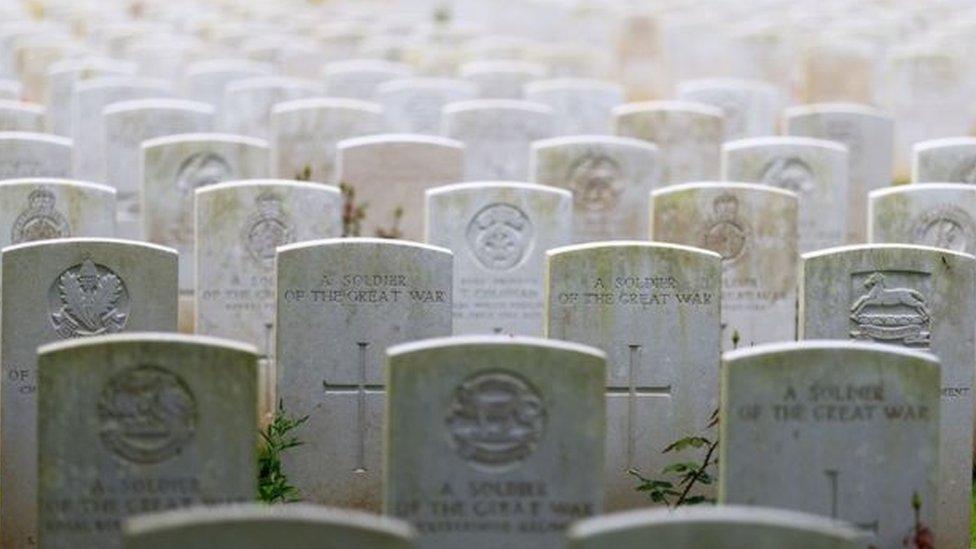
- Published17 November 2017
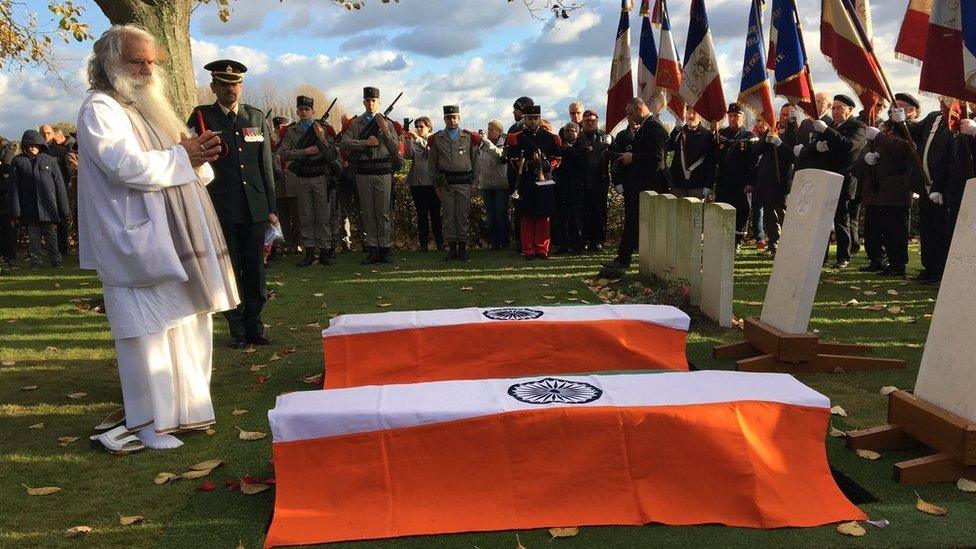
- Published17 May 2017
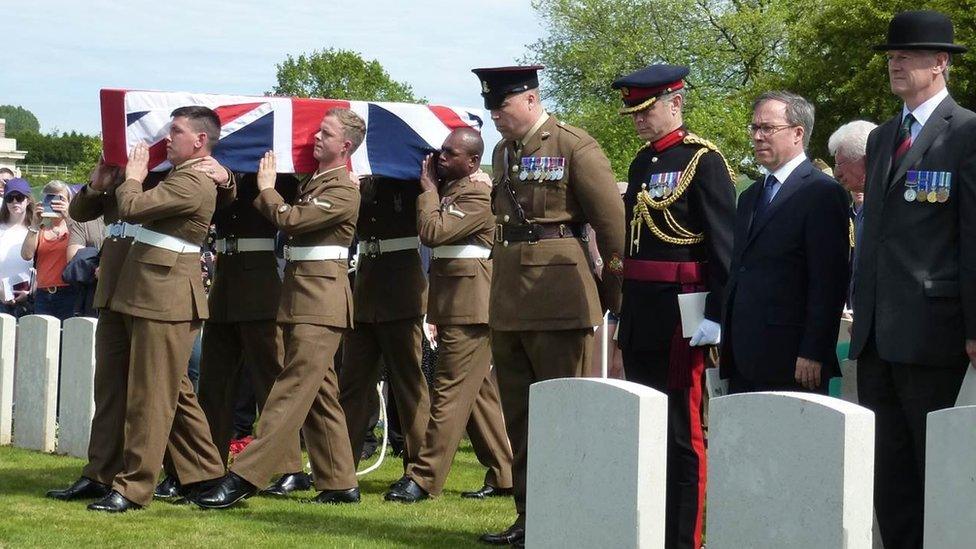
- Published9 April 2017
